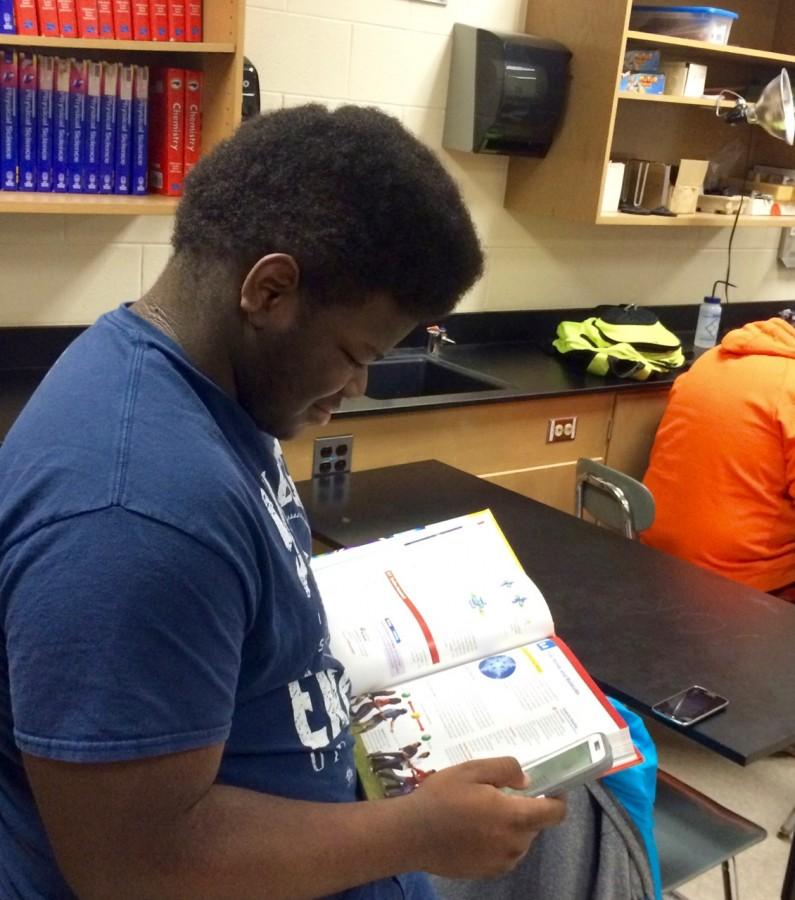Students respond to Wakefield’s new BYOD policy
Since implementing BYOD second semester of the 2015-2016 school year, students receive the new policy with mixed feelings.
Staff Photo by Yasine Mirmozaffari
Wakefield student uses his mobile device in class to assist him with his work.
After testing out the BYOD (Bring Your Own Device) program through selected pilot classes to determine what methods work and what need improvement, Wakefield has implemented the program throughout the entire school as of the second semester of the 2015-2016 school year.
With this new program fully functioning in every Wakefield classroom, some students have had to adjust to the change in technology regulations as teachers enforce the policy. However, many students feel that the program has not changed much regarding how the classes are run. It only opens the door for more active and hands-on learning because accessing information can be both easier and faster when students use their own devices.
Senior, Mason Hill feels the BYOD program will be a way to keep students engaged and responsive to lesson plans.
“The biggest change I have seen in the classroom since BYOD was introduced is that students seem more alert and more cooperative during class,” said Mason Hill. “The students are more tied into what’s going on as the teacher is teaching.”
Senior, Michaela Rankin agrees that the new technology regulations make learning easier for high school students.
“Since BYOD was implemented this semester, I noticed that a lot of people respect the teacher’s wishes not to use their phones,” said Rankin. “It’s effective because people are paying more attention in class instead of playing on their phones.”
Senior, Thomas Peters sees BYOD as a way to involve the students through hands-on, interactive learning.
“I think it’s a lot more helpful to see visual tools online,” said Peters. “In physics, we used this walking simulation on our phones with graphs of velocity. I’m a visual learner, so it helps me a lot when I can see stuff on the screen.”
Senior, Nicole Hill, on the other hand, has not noticed much change in the way her classes are administered since BYOD was implemented.
“I don’t think [BYOD] is effective,” said Nicole Hill, “because some teachers are adamant that technology isn’t necessary in their classes, so they don’t use it.”
Every new policy will have both perks and flaws, however, many students believe that using technology in the classroom will only help students advance in the world beyond school.
“I think it would be helpful to have more technology, like online textbooks because it reduces paper and cost, making school more affordable,” said Nicole Hill.
Mason Hill also agrees that in the end, BYOD will only serve to improve students’ technology skills as education progresses in the 21st century.
“There are some downsides, such as technology not responding the way you want it to,” said Mason Hill. “It can be easier to get off topic or distracted since you have the whole internet right in front of you. However, the students would become more technologically advanced and perform better in future jobs, as most jobs are moving toward a more technologically advanced state.”





